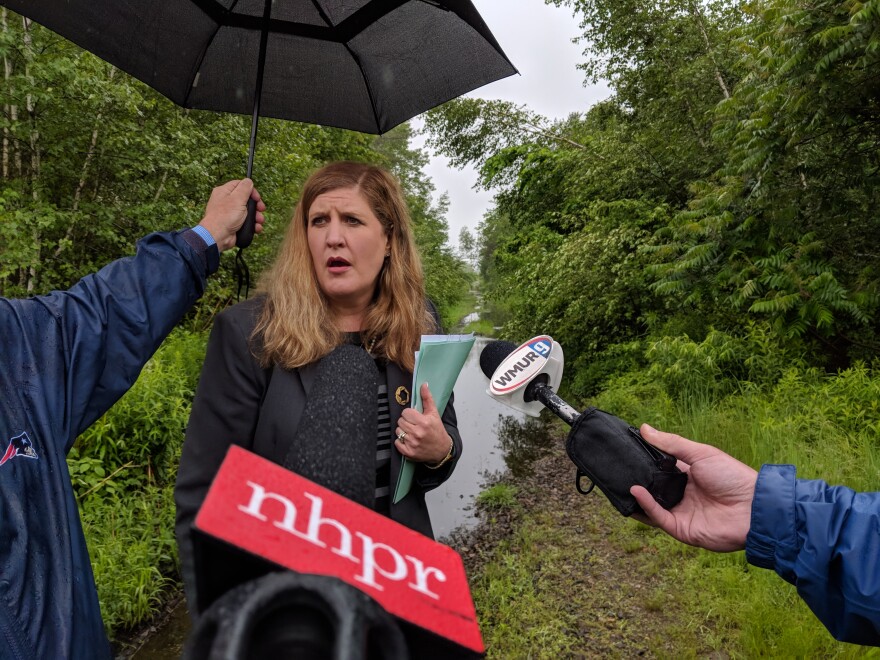Neighbors of the Coakley Landfill Superfund site in Greenland are optimistic the site may see further cleanup.
They met privately with top Environmental Protection Agency officials Monday.
The group held a press conference at the edge of a brook that runs alongside the landfill and contains high levels of potentially toxic PFAS chemicals.
“While this may have been called an emerging issue some time ago, it is now a top priority issue for the U.S. EPA,” said New England EPA Administrator Alexandra Dunn.
Dunn didn't point to any specific decisions made about more intense cleanup at Coakley, which neighbors want. But she says she's glad the agency was welcomed as a partner.
“I know that there’s been a lot of frustration around this issue,” Dunn said. “But it felt today like we have a chance to really move forward very thoughtfully, collaboratively, and we’re looking forward to being a part of it.”
Neighbors like Jillian Lane, who hosted Dunn and other officials at her house near Coakley, agreed.
"I felt very heartened, and I felt heard, and I felt understood, and I felt validated," Lane said.
Lane said she was hopeful “something productive” would occur at the site after Monday’s meeting.
“It sounds as if our goals are aligned with the goals of [EPA] Administrator [Scott] Pruitt,” Lane said. “And that will trickle down throughout the regions and impact us directly here at Coakley Landfill.”

The EPA recently began work on creating higher-level national standards for PFAS contamination. They’ll host the New England-wide meeting on the issue in Portsmouth on June 25 and 26.
Depending what those new standards are, Dunn says, they could spur action at Coakley.
This comes after reports that an unpublished study from the Centers for Disease Control shows PFAS may be dangerous to humans at much lower levels than the EPA has previously said.
Meanwhile, federal and state officials still say drinking water near Coakley is safe.
This week, they’ll begin long-term studies of bedrock beneath the landfill and fish in Berry’s Brook to see if and how contamination is spreading.
Dunn says the EPA could change its management of the site if it finds its current remedial plan doesn’t protect human health.
EPA officials will meet again Thursday night with residents and representatives of the Coakley Landfill Group, made up of businesses and municipalities responsible for the site’s contamination.
On Monday, Jillian Lane gave the EPA’s Dunn a petition signed by 135 local residents, asking the agency to compel the Landfill Group to:
- give nearby residents a supply of “safe, abundant drinking water”;
- install an “effective remediation system” at Coakley, beyond the “monitored natural attenuation” plan that’s been in place since the 1990s, before PFAS was discovered;
- expand residential well testing to homes in a contamination area determined by federal officials and verified by independent analysts;
- install and maintain water filters at homes and schools around the landfill.
The petition also asks EPA to make its new PFAS standard stricter than its current non-binding advisory limit of 70 parts per trillion, which New Hampshire also uses for its state standard.








